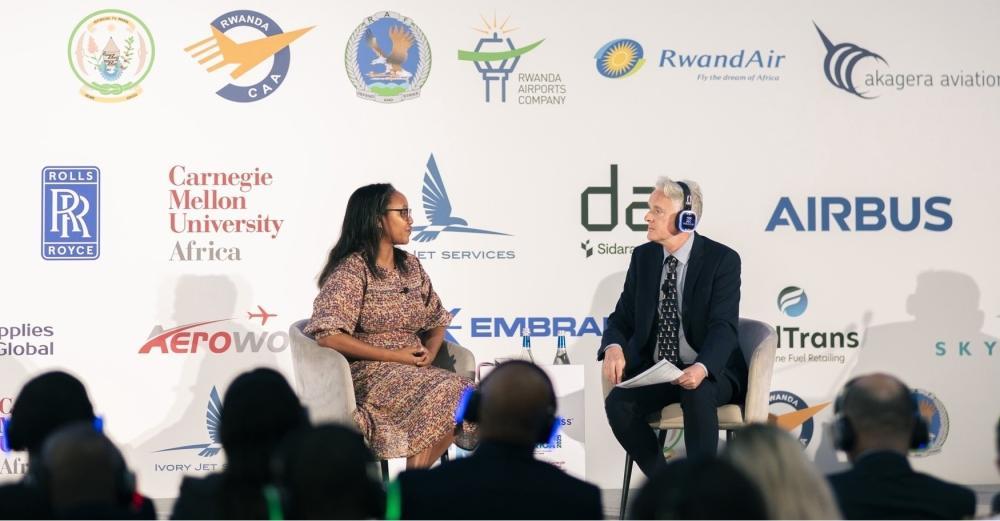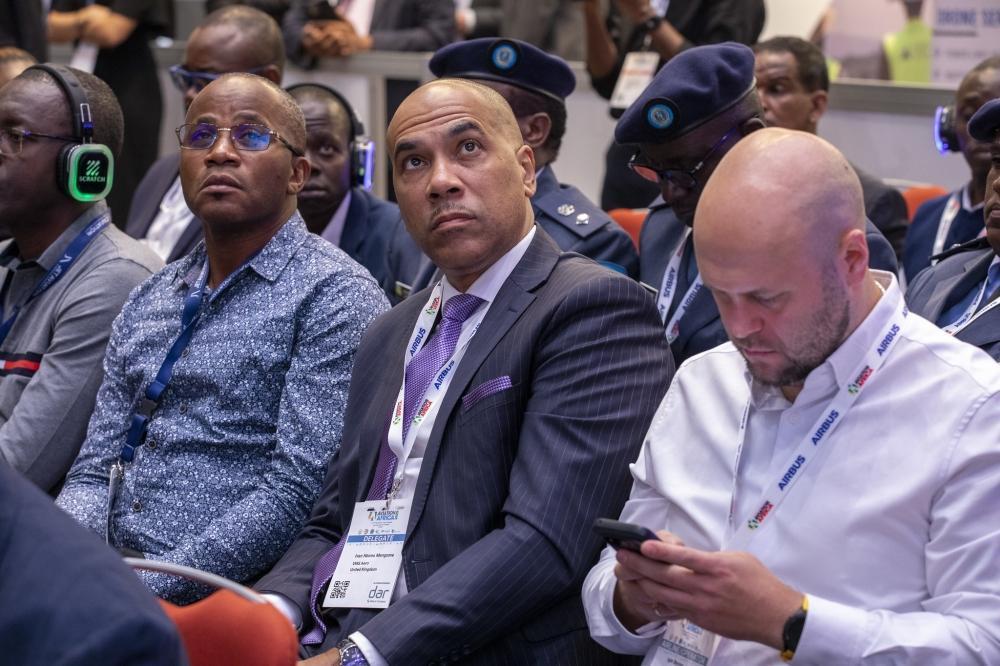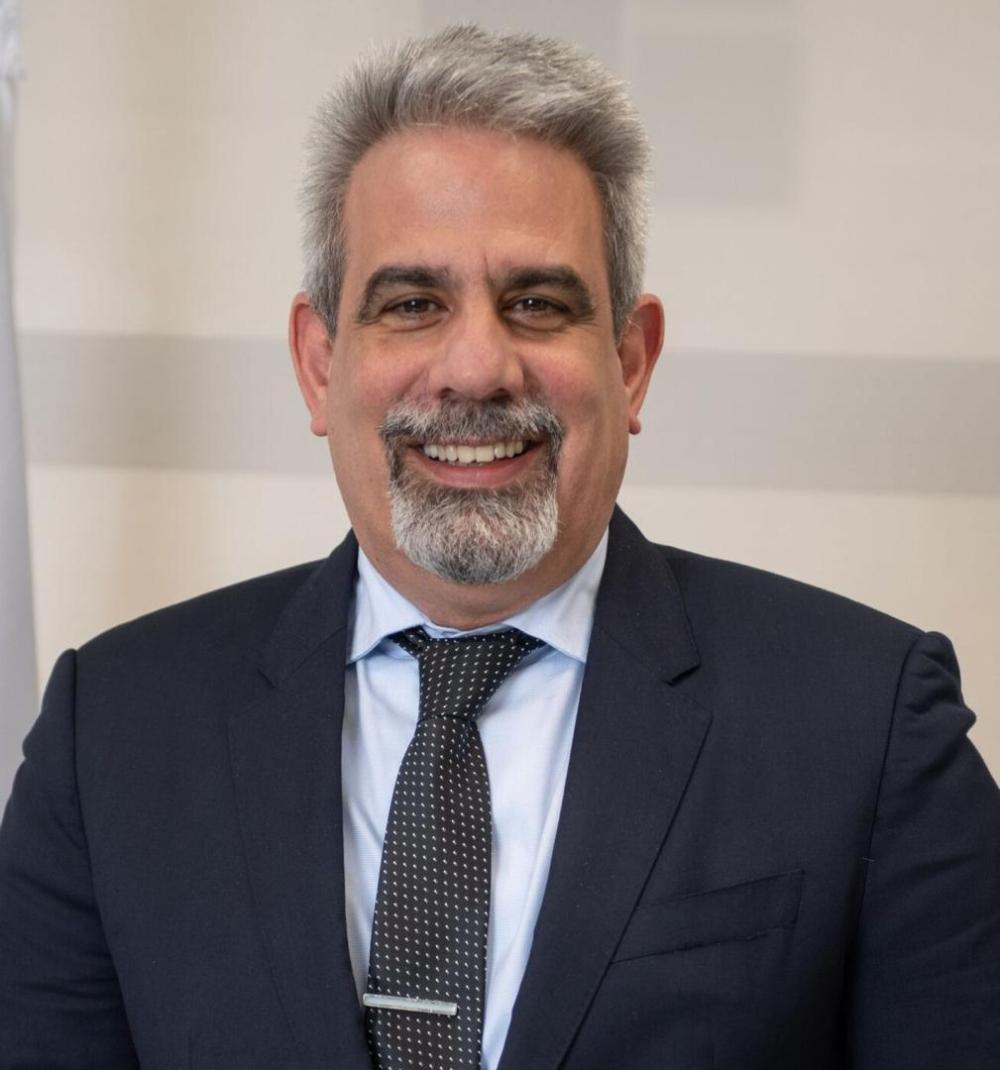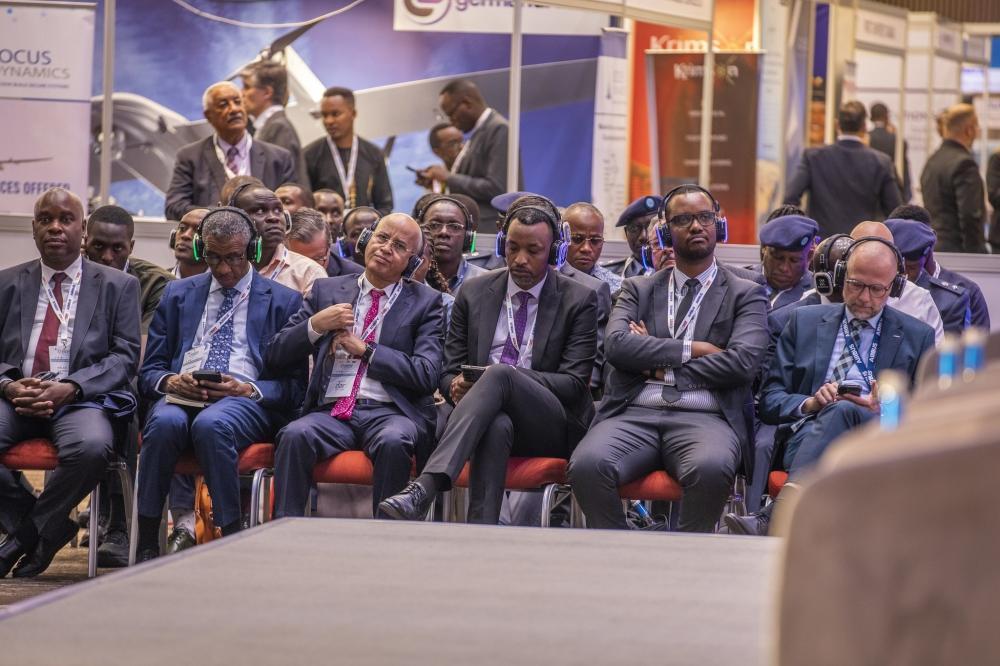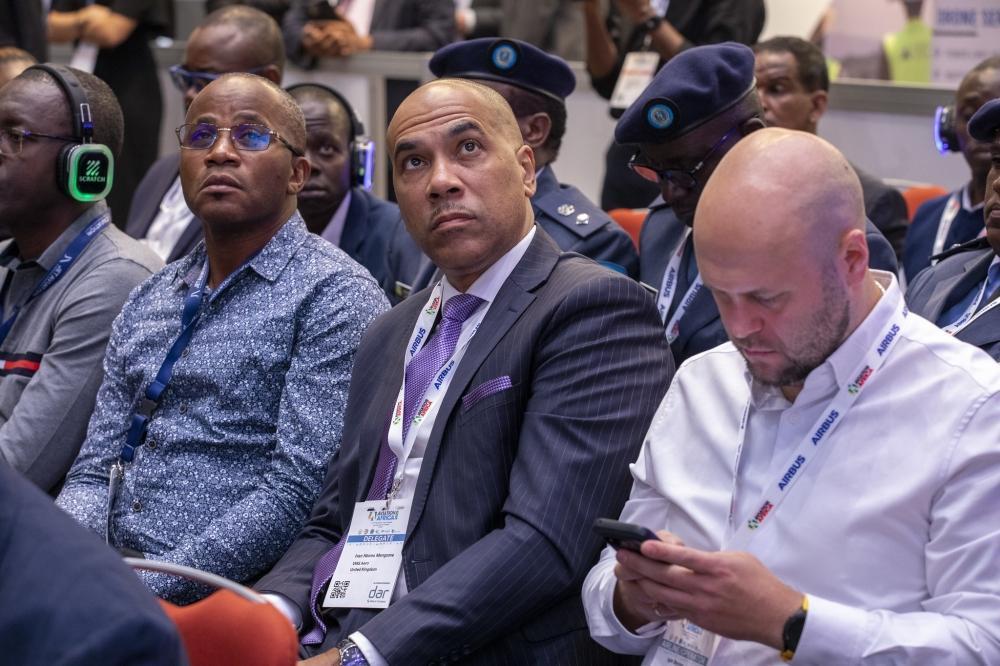Africa-Press – Rwanda. Africa’s aviation sector holds immense potential to connect economies, boost trade, and create millions of jobs — yet it’s being choked by exorbitant taxes and charges that are sometimes unpredictable.
Industry leaders warn that up to 70 per cent of airfare on the continent goes to taxes and levies, making flying unaffordable for most Africans and unsustainable for airlines.
Delegates follow a presentation at the summit. on Thursday, September 4. Photo by Craish BAHIZI
As passenger demand grows and regional integration gains momentum, industry players are calling on governments to urgently rethink their approach — or risk grounding the continent’s aviation ambitions before they can take off.
They were speaking at the 2025 Aviation Africa Summit & Exhibition, on September 4 in Kigali.
Kamil Alawadhi, Regional Vice President for Africa and Middle East at International Air Transport Association (IATA).
Kamil Alawadhi, Regional Vice President for Africa and Middle East at International Air Transport Association, said that costly processes in Africa’s aviation sector, can be a reason for discouraging investment in the industry, he argued.
One of the reasons for the expensiveness of aviation in Africa, he said, is that governments are imposing high charges, fees or taxes, adding that they change them the way they want in a way that is unpredictable.
He pointed out that they argue that according to the Chicago Convention, Article 1, the state has the right to maintain its sovereignty, and can increase the price anyway.
“The charges that I’ve seen in Africa today are sometimes 20 times more expensive than any other country [outside Africa],” he said.
“This misconception that aviation is ready to be milked just to make money is the reason why a lot of airlines are suffering in Africa today. Governments need to understand aviation before they start making these decisions and before they start thinking that just hiking prices for everything is what is going to help the aviation industry,” he said.
“Today, aviation is far more expensive in Africa than anywhere else… What’s worse is, if you buy a ticket for $1,000, $600 or $700 of that goes to taxes, charges and levies, which is ridiculous. Between 60 per cent to 70 per cent of every [air] ticket in Africa goes for taxes, charges and levies,” he said.
For him, the airline industry cannot do it on its own, he said, adding that it needs the engagement of the governments and the governments need to understand the impact they have with their decisions.
“A quick, let’s make some money on some new taxes this year, will actually eventually damage the aviation industry in that country down the road,” he said.
RwandAir Chief Executive Officer Yvonne Manzi Makolo.
RwandAir Chief Executive Officer Yvonne Manzi Makolo said that the African continent being the region with the highest charges and taxes, makes airline tickets very expensive.
“That’s why a ticket to Dubai [in the United Arab Emirates] would be cheaper than a ticket to Entebbe, which is an hour away and the other one is five hours away. So, when you look at the ticket, there are all these different charges and taxes that airports and governments put, which make it very expensive basically,” she said.
She stated that if aviation is to become more affordable and accessible to a broader population — not just the wealthy — then costs must be reduced, as operating an airline in Africa is extremely expensive due to high fuel prices and other costly factors across the continent.
According to the 2024 African Airlines Association (AFRAA taxes and charges study review, taxes and charges represented over 35 per cent of the average air ticket price in Africa. However, on some intra-African routes, taxes exceed the base fare, reaching 70 per cent of the total cost.
While the average amount of taxes, charges and fees paid by passengers for regional departures in Africa is $68, passengers are charged $32 in Europe and $34 in the Middle East, despite the fact that traffic is much more important in these regions.
It added that 42 countries applied air transfer fees in Africa in 2024 compared to 35 in 2022, adding that transfer fees increase ticket price by an average amount of $34.4 in 2024.
Effects on airlines
Makolo said that such high air charges and taxes on the continent make it very expensive for airlines to operate, “and we are not able to sell to a bigger market.”
“It’s only the people who can afford who can buy tickets. If the price went down, we’d sell to more people. It would be accessible to the next layer of people. So it’s an issue of volumes. If the tickets are expensive, we don’t have as many customers as we should be having,” she said.
“And it also affects airports and governments, because we should be thinking about volumes, making it accessible to many people so that they can also make more money,” she added.
Abderahmane Berthé, Secretary General of the African Airlines Association (AFRAA), said the Single African Air Transport Market (SAATM) now has 38 signatories. While implementation varies, he said liberalisation and growing visa openness are key to lowering fares, improving connectivity, and boosting intra-African trade.
The two-day summit is taking place at Kigali Convention Centre on Thursday, September 4. Photo by Craish BAHIZI
On taxes and charges, Berthé acknowledged industry concerns but said there was progress in some regions. He highlighted the Economic Community of West African States (ECOWAS), where in 2024, Heads of State directed civil aviation and finance departments to reduce aviation taxes. As a result, member states are expected to implement reductions starting January 2026, with AFRAA involved in the process.
“I’m happy [with that] and I want to see this kind of move in other regions across the continent. However, I know that, I agree with Kamil, taxes and charges are a concern,” he said, underscoring the significance of AFRAA’s advocacy towards a solution to the issue.
Aviation as an important sector that deserves adequate support
Kamil said that aviation is more than just air traffic, observing that it is a powerful economic and social enabler.
For instance, he said that in 2023, air transport supported 8.1 million jobs in Africa, which contributed $75 billion to the GDP of Africa. He indicated that every aviation job supports 22 others across the economy.
While there is aviation potential in Africa, he underscored two strategic priorities essential for its industry’s growth, which are connecting the continent and strengthening intra-Africa trade.
Regarding connecting the continent, he said in many cases, it is easier to fly to another country outside the continent than to fly to countries on the continent.
For him, visa openness is essential to this connectivity, pointing out that every additional barrier to travel, high visa fares, complex processes, or outright restrictions, are a barrier to aviation growth.
Encouragingly, he said, in 2024, Rwanda, Benin, Gambia, and Seychelles offered visa-free access to all Africans, “which is excellent.”
Delegates follow a presentation at the summit. on Thursday, September 4. Photo by Craish BAHIZI
For More News And Analysis About Rwanda Follow Africa-Press

